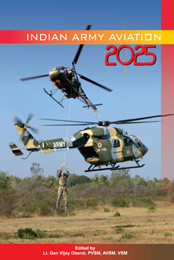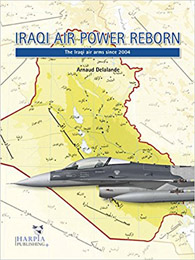Subjects
Recent View(s)
- Reflections of An Air Warrior
- Defence from the Skies: Indian Air Force Through 75 Years
- Thimayya: An Amazing Life
- Understanding Japjee Sahib: The Essence of Guru Granth Sahib
- Remembering Pyarelal: Mahatma Gandhi's Secretary and Biographer
- Afghanistan after the Western Drawdown
- Memoirs of a Seeker
- Comprehensive Maritime Security in The Indian Ocean Region: Challenges and Opportunities
- India’s Neighbourhood: Challenges and Opportunities
- Not An Accidental Rise Harsh Vardhan Shringla (Bangali)
- Living Through Times
- India’s Aerospace Power: The Central Asian Dynamics
- Afghanistan Under the Taliban: Pasts and Anticipations
- Global Review 2024
Defence from the Skies: Indian Air Force Through 75 Years
Jasjit Singh
If the Dakota transport aircraft of the Indian Air Force flying from Delhi with troops of the Indian Army had not landed at Srinagar on the morning of October 27, 1947, the history and geography of the subcontinent may well have been different! Or if the four Hunter fighters had not destroyed the bulk of Pakistani tanks at Longewala in 1971, the road to Jaisalmer for their armour thrust was wide open. The history of the Indian Air Force over the past seventy-five years is replete with instances of the IAF’s role in national defence.
Air Forces are unique in the sense that they are the only national military institution exclusively devoted to military operations in the aerospace continuum. The Indian Air Force is no different. But their dominant role in modern warfare, the high costs of aerospace power, and a host of other factors demand closer attention to their role in modern defence and the protection of national interests. Air Forces don’t win wars by themselves; and no one in the Indian Air Force has ever claimed it. But no war can be won without them. We learnt that seminal lesson the hard way when we did not use the potent force of the IAF’s combat fleet in the Sino-Indian War of 1962 It is from this perspective that this study — or rather an interpretative essay reflecting on the significant issues and events of the past 75 years — approaches the challenges the Indian Air Force faces in the coming decades. IAF combat forces levels have slumped while its commitments are rapidly growing in consonance with our expanding economic and political interests well beyond our territorial boundaries.


 Political Science
Political Science


